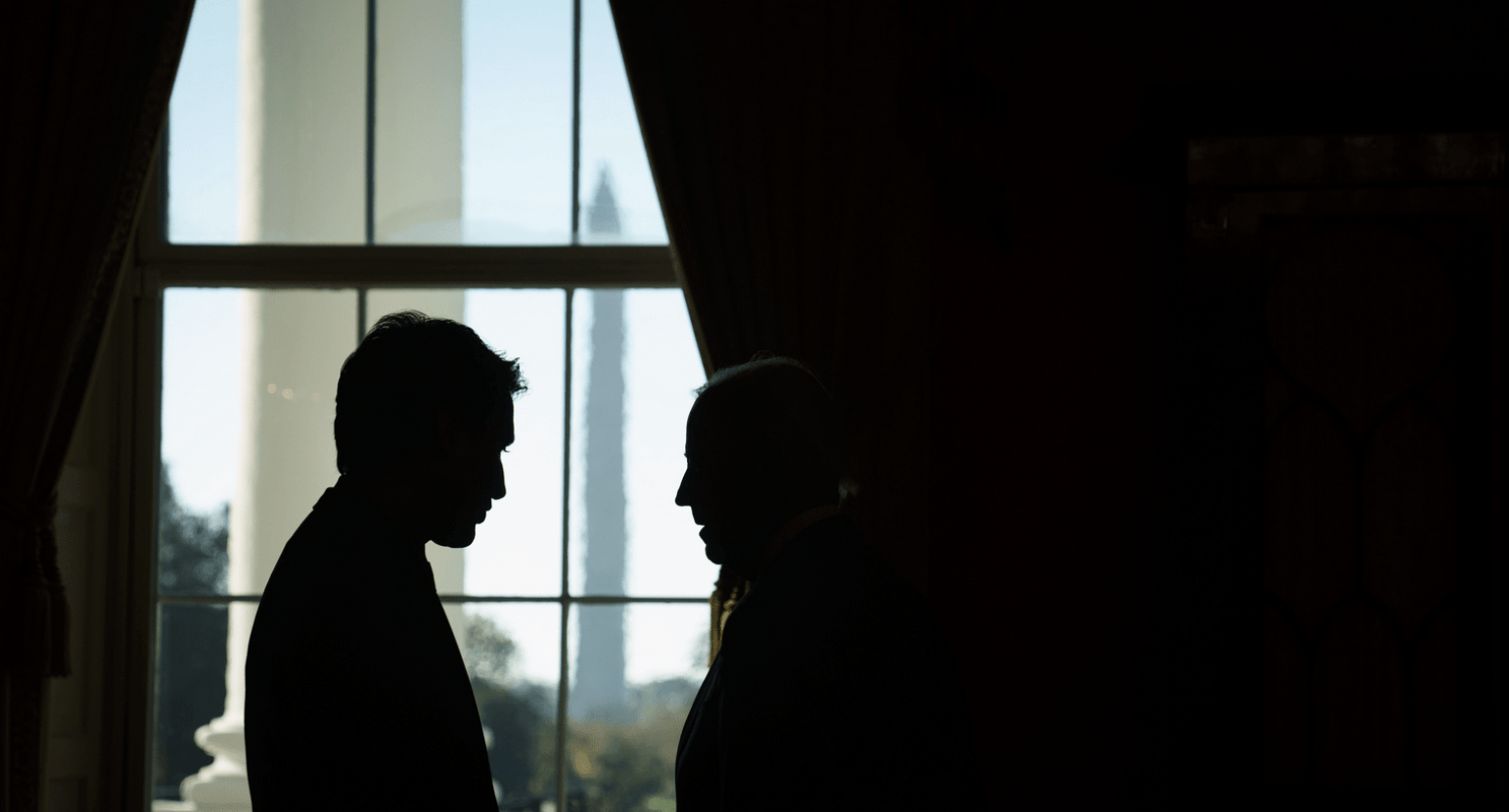Memo to Trudeau’s Successor: Make Canada Count Again
 Justin Trudeau and Joe Biden at the White House in 2023/Adam Scotti
Justin Trudeau and Joe Biden at the White House in 2023/Adam Scotti
By Jeremy Kinsman
January 6, 2025
As of this first Monday of 2025, the Justin Trudeau era is all-but over, after the long agony of waiting for the larger political reality to register in the prime minister’s own assessment of his possibilities and prospects.
This comes at a potentially dire time, what with Donald Trump wanting to leap from his nationalist starting blocks on January 20 — the Day One on which he vowed to impose devastating tariffs on Canada. Whether that was ever going to be more than a harsh application of leverage to support his domestic points about illegal immigrants and drugs crossing the border, and to boost US advantage in trade negotiations, we’ll find out.
But we should hope that Prime Minister Trudeau, who is staying on until his successor is chosen, will effectively represent the sovereign state of Canada in refuting any further, offensive “51st state” remarks from the US President or Elon Musk or anybody else. There will be eventual CUSMA re-negotiations with the US Government, but their management and articulation will really need to wait until Canada has an election, sometime in the late spring.
Those negotiations will need to take place in an atmosphere of mutual respect, country-to-country. They will require considerably more national unity in Canada than exists at present. Perhaps Trudeau, having exited from competitive politics, will be able to contribute in coming months to that process. There needs to be considerably more solid communication with the Canadian business community coast-to-coast to achieve it.
Meanwhile, what happened to Justin Trudeau’s 2015 promise of “sunny ways?” Time erodes the popularity of any elected leader. Basically, in an era of anti-incumbency, a decade is a political lifetime. In those terms, as for any political leader of any democracy, time’s up. It’s been clearer in Justin Trudeau’s case because his “sunny ways” mindset was derailed by the time Covid hit. He carried the country through the crisis but never again found traction on program delivery that resonated with Canadians. An effective communications narrative needs demonstrable action — not enough of it emerged.
Canada has to deepen ties with other democracies, strengthen the attractiveness of our economy to their investors, and look to begin a dialogue with the world’s two giants, China and India.
In the end, Trudeau’s sacking by zoom of his loyal deputy prime minister and minister of finance, Chrystia Freeland, whose responsibilities had been wantonly disrespected by Trudeau’s PMO, showed such ineptitude on his part that the coup de grâce of Ms. Freeland’s resignation letter was barely required for confidence in his leadership to crater. It was also typical of a PMO whose obsession with short-term “comms” had become so starkly misaligned with public sentiment.
Those domestic issues will be analyzed by others. In foreign policy, his was a time in which Canada initially seemed to be fortunate in its choice of positive leadership. The Vogue photo-shoots with Sophie seemed to reinforce the image of coolness, along with his declaration that Canada was becoming the first “post-national” nation.
Unfortunately, nationalism elsewhere was on the rise. The nationalists caught something in the public mood in their countries that Trudeau couldn’t capture for Canadians. The focus at home and abroad was on identities, but in their various particularities, not in their aggregate. Simply put, the inanity of declaring Canada to have a “feminist foreign policy” missed our founding principle of having a “humanist” foreign policy (as one pillar, the other being the US) that of course includes gender equity at home and supportively in programs abroad. He declared the 2019 Charlevoix G-7 Summit’s theme to be “women and girls” when in reality the preoccupations of G-7 partners were over the sustainability of global norms, international cooperation, and the rule of law. Trump trashed the Summit.
Going forward, it is imperative for Canada, and Mexico, to again persuade the US of the validity of an interdependent “North American community” as evoked in the 1980 presidential campaign by Ronald Reagan and as confirmed by NAFTA and its negotiated successor treaty. Meanwhile, Canada has to deepen ties with other democracies, strengthen the attractiveness of our economy to their investors, and look to begin a dialogue with the world’s two giants, China and India. We need to commit to a more plausible role in military vigilance for as long as Russia is a self-declared adversary of liberal democracy and a dangerous aggressor to neighbours. We need to reclaim a foreign affairs role that is meant to be positively productive and helpful, not simply declaratory.
“What’s happened to Canada?” is the question most heard about us in the international foreign policy communities in recent decades. Justin Trudeau initially appeared able to provide a positive retort to that question, but never produced the substance. His successor will be busy but will have to reassert the position and potential of Canada as a sovereign, internationalist state. And a country that, once again, counts.
Policy Contributing Writer Jeremy Kinsman was Canada’s ambassador to Russia, high commissioner to the UK, ambassador to Italy and ambassador to the European Union. He is a Distinguished Fellow of the Canadian International Council.
